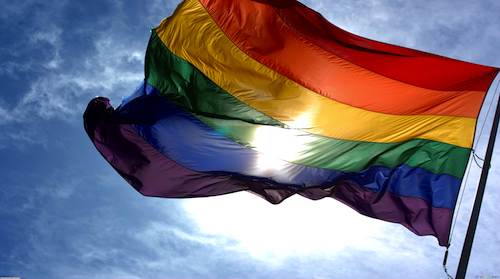
BY: Andrew Alvarez
LGBTQ history is brushed off, often regarded as an off-limit topic that’s impolite to broach.
I’ve witnessed that in school. On the rare occasion that LGBTQ history is mentioned, it is not taken seriously by students or faculty, and is seen as inferior to traditional history lessons.
Take, for example, LGBTQ icon Alan Turing, who made several major contributions to modern society. He helped end World War II by creating a machine — essentially the world’s first prototype of a computer — to decipher the code used by Germans. He saved about 14 million lives and still did not meet the criteria of society to be taught in schools.
Instead, for his homosexuality, he was condemned to be dehumanized by chemical castration, a once-popular alternative to a traditional prison sentence that killed sexual drives in men.
We cannot learn from the mistakes made by those in the past if we are not shown the whole picture. Ignorance only exists because we allow it to. The moment we accept that we are inferior because we are the minority is the same moment that we surrender our freedom on a silver platter.
Freshman year, I was introduced to an advocacy program though the Dolores Huerta Foundation, which recognized LGBTQ history. Learning about the advocacy programs in my community enabled me to reach out to the faculty at my school who gave me some insight to the struggle for equality.
Think of those who want to learn about topics such as LGBTQ history but do not have the same advocacy opportunities that I have. It is not fair that it isn’t adequately taught in schools.
The F.A.I.R. Education Act requires schools to incorporate LGBTQ history into curriculum, however many teachers are skeptical of raising these issues in the classroom.
Should LGBTQ history receive the recognition it deserves the likelihood of discrimination would decrease, or at least begin to make it so that discrimination against minorities is frowned upon by society.
Whitney Weddell, a teacher at Nueva High School in Lamont, believes that new US history books are necessary for battling discrimination that the LGBT community faces. “US history teachers are expected to go over about 130 years of history,” she claims, “but LGBTQ history should also be included.” By doing so, history teachers, both allies and non-allies, would feel more inclined to go over LGBTQ related material.
If LGBTQ history were taught widely in school, those who identify with the LGBTQ community may reap the benefits of their history and feel visible and appreciated.
Weddell makes up her own lesson plans in her class. She claims that while she does teach at a relatively small school, talking about these topics and issues promotes acceptance and reduces the likelihood of bullying.
By leaving this part of American history out of the public eye, LGBTQ youth like myself may feel insignificant because the history that resonates with them is brushed under the rug.
The feeling of inferiority can only further unfold when the contributions made by those in the LGBTQ community are disregarded because of a label placed onto them based on their sexual orientation, gender identity and/or gender expression.
Being introduced to historical figures from a past history teacher and learning more about it from my advocacy program led me to believe that the fight for just an opportunity to be treated humanely would be troublesome.
Not long ago was it not a bad idea to use electroshock therapy to cure people of the “illness” of homosexuality. It was not until the early 1990s that homosexuality was no longer considered a mental illness. I took from Turing’s experience that my sexuality did not define my personality, nor did it limit my capabilities. His experience led me to believe that while we cannot be rid of the labels placed upon us, we can work in our own interests and develop a sense of duality, the ability to hold more than just one concept.
Should LGBTQ history be given the recognition it deserves may we accept that people can be gay and human, lesbian and human, pansexual and human, and so on. We can hold as many labels and aspects as our hearts desire.
By doing so, may we all aid each other in reaching our full potential. After all, it is not the purpose of these labels to divide us. The labels remind us that while we may not have the same experiences and interests, we are all one. None of us is superior to the other. While the conditions for the LGBTQ community are not as atrocious as they once were, we should keep pushing for reform, and for the belief that society should be as harmonious as we wish it to be.
Andrew Alvarez, 16, is a junior at West High School, a youth advocate for Dolores Huerta Foundation and AP/Honors student.